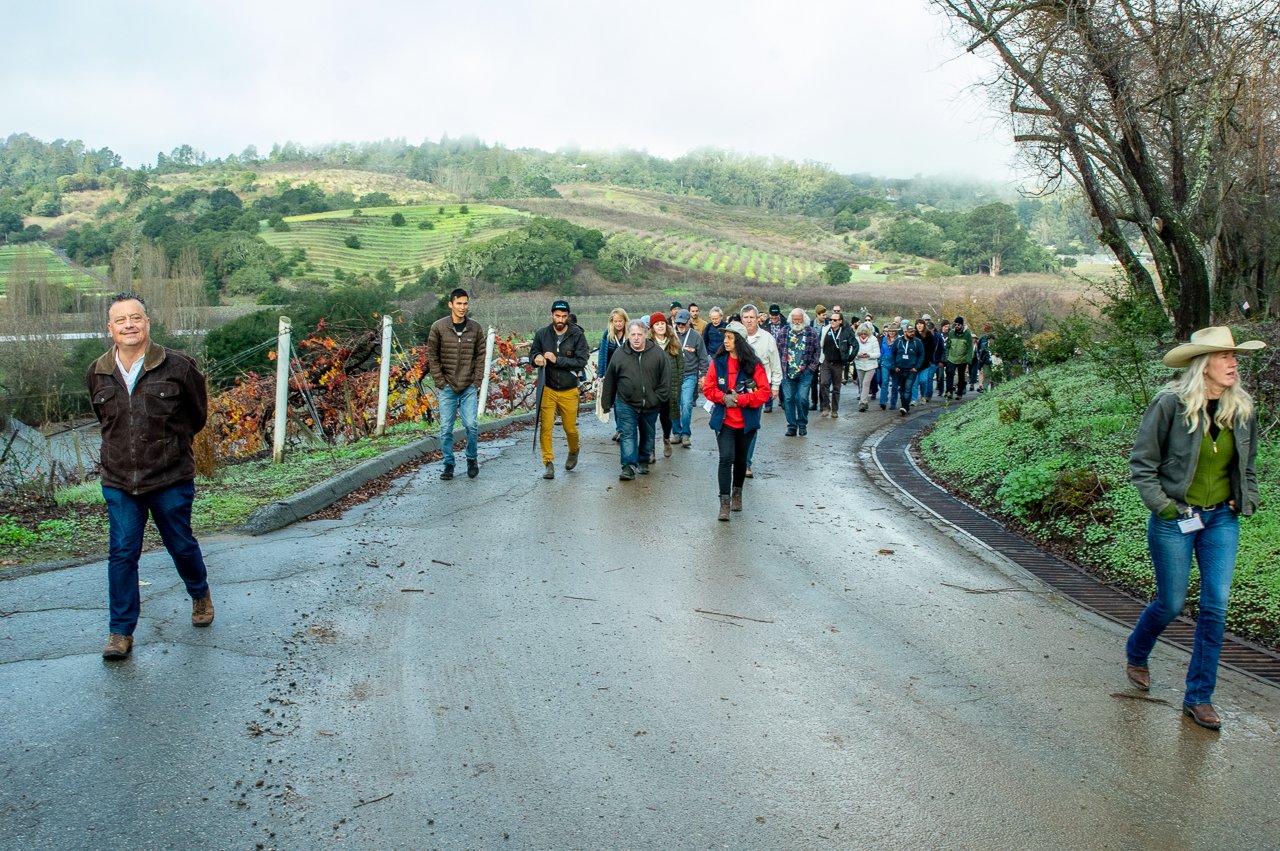Regenerative Agriculture Field Day at Paicines Ranch
Tuesday, January 16, 2024
Pathways to Biodiversity: creating conditions for growing biodiversity while practicing agriculture.
How can we encourage and create conditions for diverse life to flourish in our agricultural practices? Join us for an engaging pre-conference field day to delve into the critical importance of biodiversity with some of the most dynamic and inspiring speakers in regenerative agriculture. Explore how to have a deeper relationship with the land where you work or reside by tapping into nature for guidance. Grow your understanding of the signals that move us toward a more complex, beautiful, and diverse food system beyond the intellectual wall as the primary way of sensing and understanding.
Presenters: Nicole Masters, Wendell Gilgert, Cole Bush, & Paicines Ranch team
$100 - Includes a delicious locally sourced organic lunch and wine-tasting
Note: Paicines Ranch is approximately 1.5 hours away from Asilomar. Please plan accordingly.
EcoFarm Bus Tour 2024
Wednesday, January 17, 2024
8-6pm
California’s Central Coast boasts distinctive weather patterns, offering foggy summers, balmy springs and falls, and temperate wet winters, fostering a diverse array of crops. The annual EcoFarm bus tour provides an unparalleled opportunity to glean insights from pioneering farms. Embark on this enlightening full-day journey to delve into organic agriculture in the region. Explore Rancho Soquel, Esperanza Community Farms, and the Santa Cruz Center for Agroecology, a hub on a college campus driving research for diversified organic farms and a collaborative of farmers.
$135 -Includes lunch at UC Santa Cruz Center for Agroecology The tour will begin and end at Asilomar.
YOUR TOUR GUIDES
Javier Zamora | JSM Organic Farm
Nathan Harkleroad | Agriculture and Land-Based Training Association (ALBA)
Nathanael Gonzales-Siemens | Rodale Institute
Featured Farms
RANCHO SOQUEL
-
Nestled in the serene Soquel Creek Watershed, Rancho Soquel spans 115 acres with a clear mission since its 2017 inception: cultivating nature's most nutrient-rich food. Our sustainable techniques, including remineralization, cover cropping, and organic compost application, enrich the soil's nutrients and secure its legacy for posterity. Technology, notably Tend farm management software and Farm-ng's Amiga micro AI tractors, play crucial roles in crop planning, record-keeping, and advanced farming practices. Experience this unique blend of sustainability and innovation firsthand at Rancho Soquel.
-
THE CENTER FOR AGROECOLOGY
-
UC Santa Cruz's Center for Agroecology, rooted in the Division of Social Sciences, drives agroecology and equitable food systems through experiential education, participatory research, and public service. It oversees the Alan Chadwick Garden and the UCSC Farm, vital outdoor classrooms. For 50+ years, they've educated students, apprentices, and community members in organic gardening and farming. The Center spearheads research projects, partnering with UCSC, local farmers, and UCANR, addressing key farming and food system issues. They also ensure students have access to affordable, UCSC Farm-grown produce, and manage the Cowell Coffee Shop, providing free meals and drinks to students.
-
ESPERANZA COMMUNITY FARMS
-
Esperanza Community Farms pioneers sustainable agriculture for food security in Pajaro and Salinas Valleys. They grow fresh, culturally-preferred produce without pesticides. Their approach includes a subsidized CSA, partnering with farmers-of-color via 7 Plus Organics Coop, and a Farm-to-Cafeteria initiative in local high schools. Collaboration with partners like Land Trust of Santa Cruz County ensures continued organic farming. Salazar Organic Farms, a co-founder of the regional Ag co-op, promotes wealth-building for farmers. Their model empowers small farmers, localizes food systems, and fosters sustainable communities through a dynamic, less wasteful approach to good food.
-
Can Organic Farms Transition Soils into Low Disturbance Tillage Without Sacrificing Yield?
Presenters:
Timothy Bowles - Associate Professor, Department of Environmental Science, Policy and Management, University of California Berkeley
Cynthia Daley - Professor & Director of the Regenerative Agriculture Initiative and Organic Dairy Program, College of Agriculture at California State University, Chico
Amelie Gaudin - Associate Professor, Endowed Chair in Agroecology, Department of Plant Sciences, University of California, Davis
Eric Morgan - Vice President of Environmental Science and Resources at Braga Fresh Family Farms, Soledad, California
Hannah Waterhouse - Assistant Professor of Agroecology and Watershed Ecology, Environmental Studies Department, University of California, Santa Cruz
Tom Willey - Farmer Emeritus, T&D Willey Farms, Madera, California
Darryl Wong - Executive Director, Center for Agroecology, University of California, Santa Cruz
Wednesday, January 17, 2024
9-4 pm
Fred Farr Forum, Asilomar
$95 (lunch included)
A humble and generous university researcher recently quipped “Farmers figure out how to make something work, then we scientists follow behind and try to figure out why it works.” In the case of organic No-Till, at scale, neither farmers nor researchers have figured out how to radically reduce soil disturbance while maintaining commercially acceptable yields. EcoFarm has hosted presentations over several years on farmers’ collaborative efforts to reduce tillage in organic vegetable production. This preconference shifts focus to our academic research community where the dynamics of soil function, biological, physical, and chemical, in response to tillage, along with carbon and nitrogen inputs are under intense scrutiny. A fresh generation of soil scientists embrace life’s complexity underfoot and wield novel tools of exploration coupled with powerful computing capability to reveal “secrets of the soil”. Join inquiring minds, both scholars and farmers, for a full day of interactive education focused on the practical implications of tillage reduction on working organic farms.






